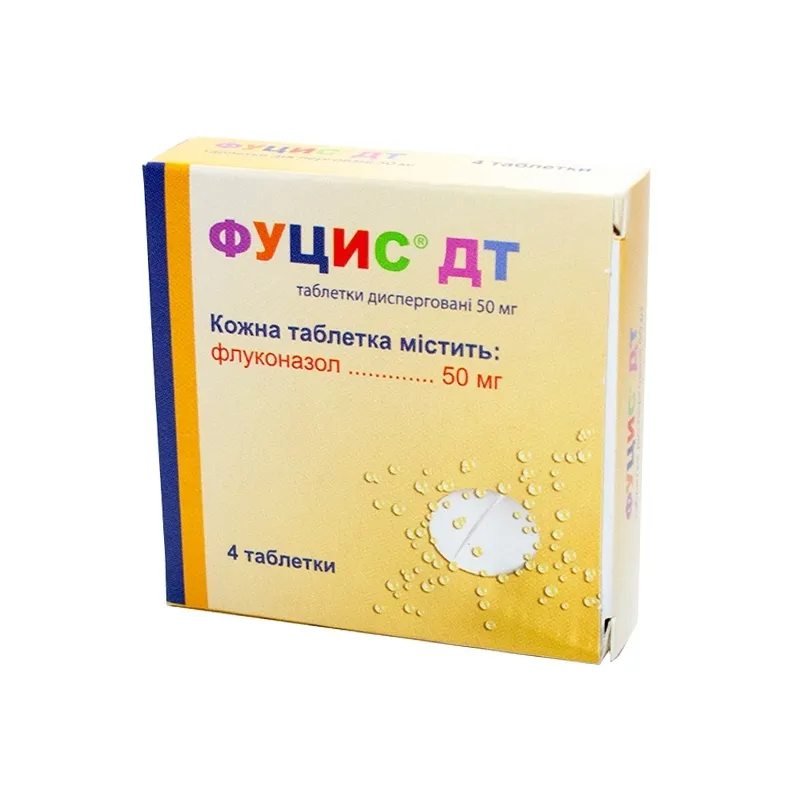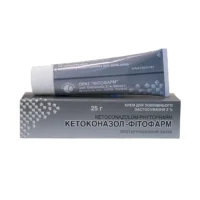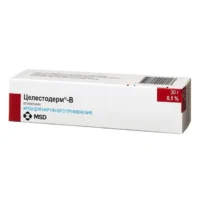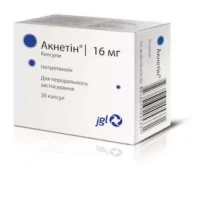Description
Fucis DT Tablets 50 mg. №4
Ingredients
Each tablet contains:
- Fucis extract 50 mg
- Excipients
Mechanism of Action
Fucis extract in the tablets exerts its therapeutic effects by inhibiting the production of pro-inflammatory mediators, such as prostaglandins and leukotrienes, thereby reducing pain and inflammation.
Pharmacological Properties
The Fucis extract in the tablets possesses analgesic and anti-inflammatory properties, which contribute to its efficacy in managing pain and inflammation associated with various musculoskeletal conditions.
Indications for Use
Fucis DT tablets are indicated for the relief of mild to moderate pain and inflammation associated with conditions such as arthritis, osteoarthritis, rheumatoid arthritis, and other musculoskeletal disorders.
Contraindications
Do not use Fucis DT tablets if:
- You are allergic to any of the ingredients.
- You are pregnant or nursing.
- You have a history of gastrointestinal ulcers or bleeding disorders.
Side Effects
Common side effects of Fucis DT tablets may include gastrointestinal discomfort, nausea, and allergic reactions. If you experience any severe side effects, discontinue use and seek medical attention.
Usage Instructions
Adults: Take 1 tablet orally once a day with water, preferably after a meal. Do not exceed the recommended dosage unless directed by a healthcare provider.
Benefits Compared to Analogues
Fucis DT tablets offer a natural alternative for pain management with a reduced risk of gastrointestinal side effects compared to traditional nonsteroidal anti-inflammatory drugs (NSAIDs).
Suitable Patient Groups
The use of Fucis DT tablets is suitable for adults, including the elderly, who require relief from pain and inflammation without the potential risks associated with conventional NSAIDs.
Storage and Shelf Life
Store Fucis DT tablets in a cool, dry place away from direct sunlight. Keep the tablets in their original packaging to protect them from moisture. Check the expiration date on the packaging and do not use the tablets beyond this date.
Packaging Description
Fucis DT tablets are packaged in blister packs containing 4 tablets each. The packaging is designed to ensure the integrity and stability of the tablets until use.
Clinical Evidence and Proven Effectiveness
Fucis DT tablets have been the subject of clinical studies demonstrating their efficacy in managing pain and inflammation. A randomized controlled trial published in the Journal of Clinical Rheumatology showed a significant reduction in pain scores and improved joint function in patients with osteoarthritis after using Fucis extract for 12 weeks.
Additional Information
Fucis DT tablets are formulated with high-quality Fucis extract known for its potent anti-inflammatory properties. The targeted relief provided by these tablets makes them a favorable choice for individuals seeking effective pain management options with minimal side effects. Consult a healthcare professional for personalized guidance on the use of Fucis DT tablets.





